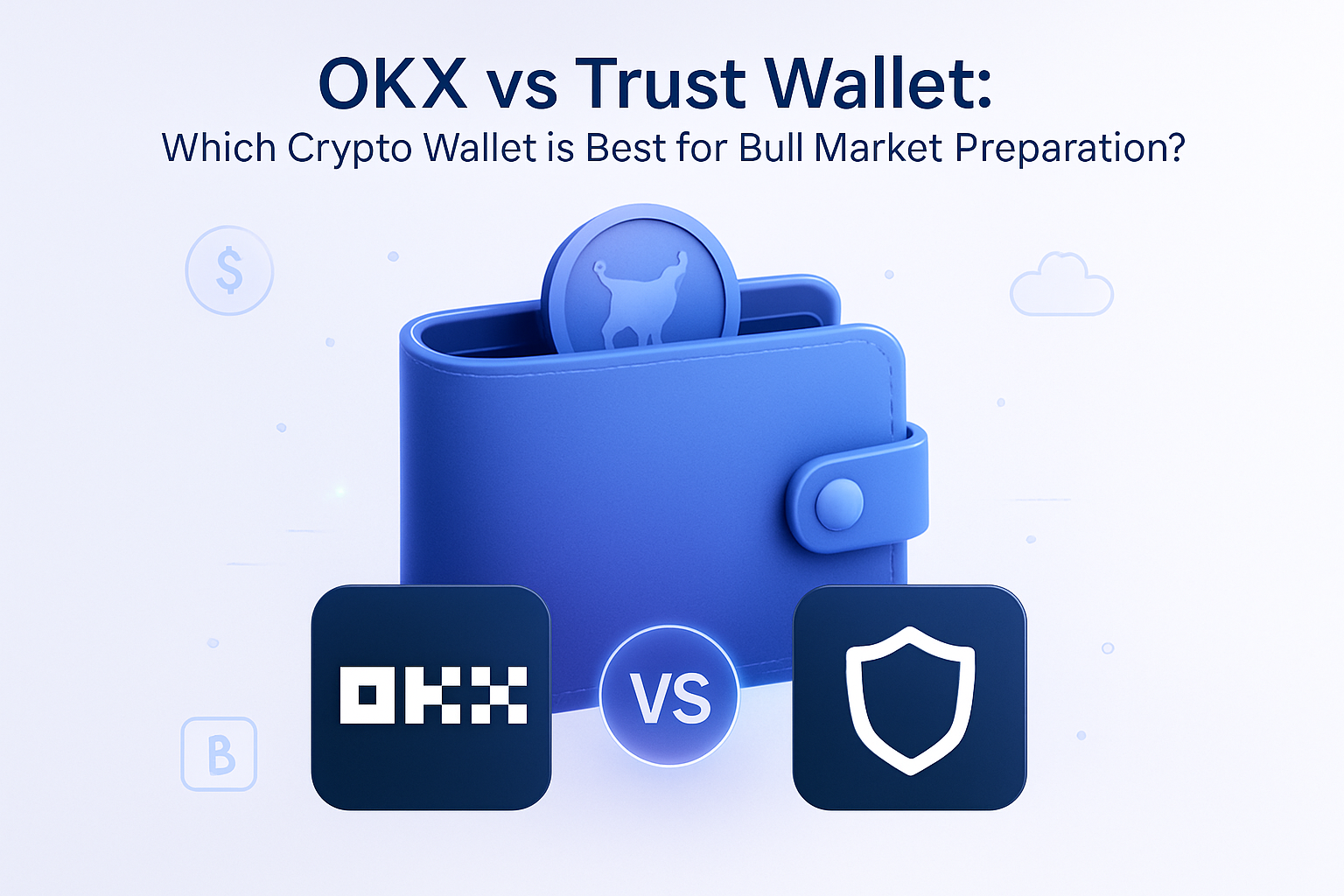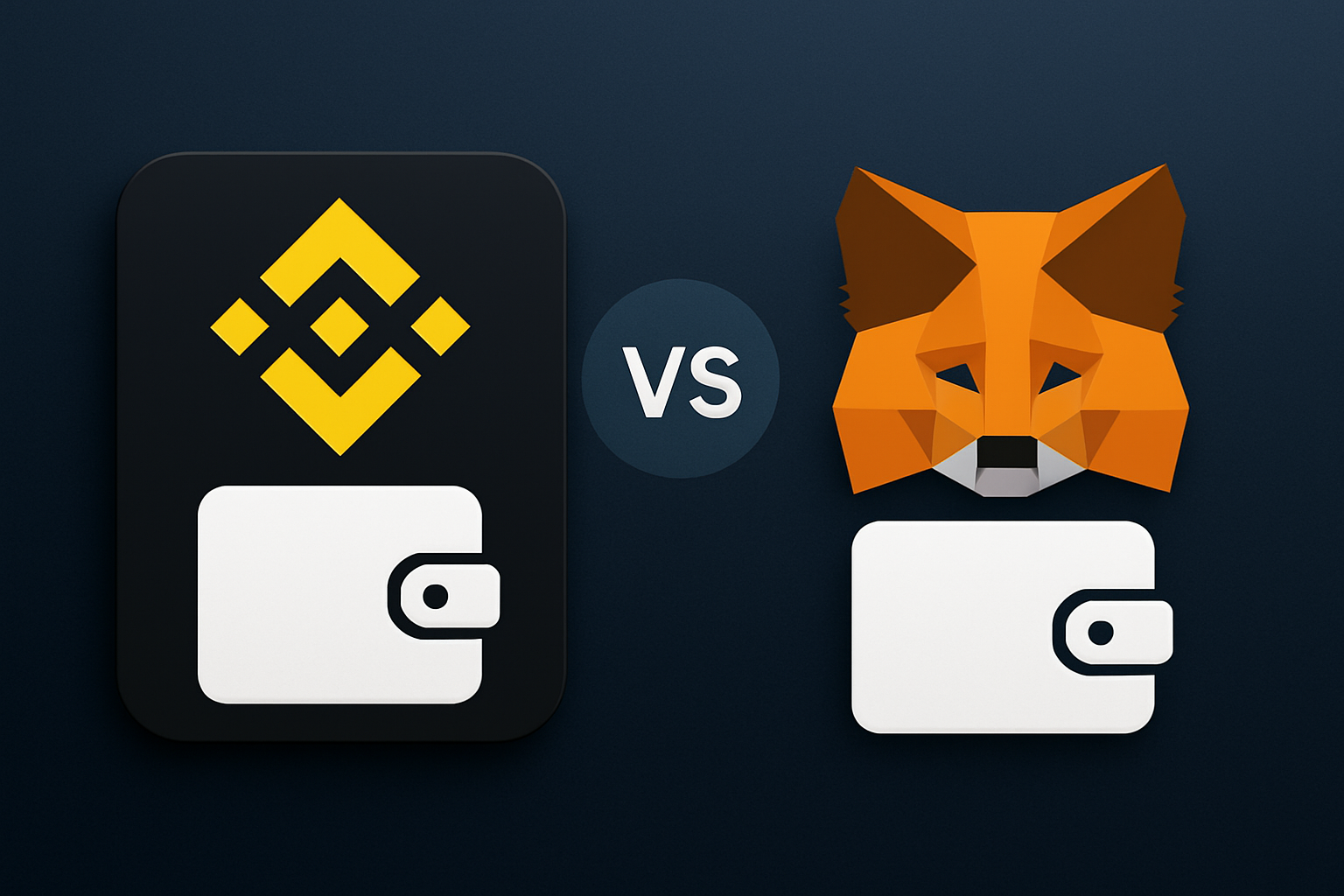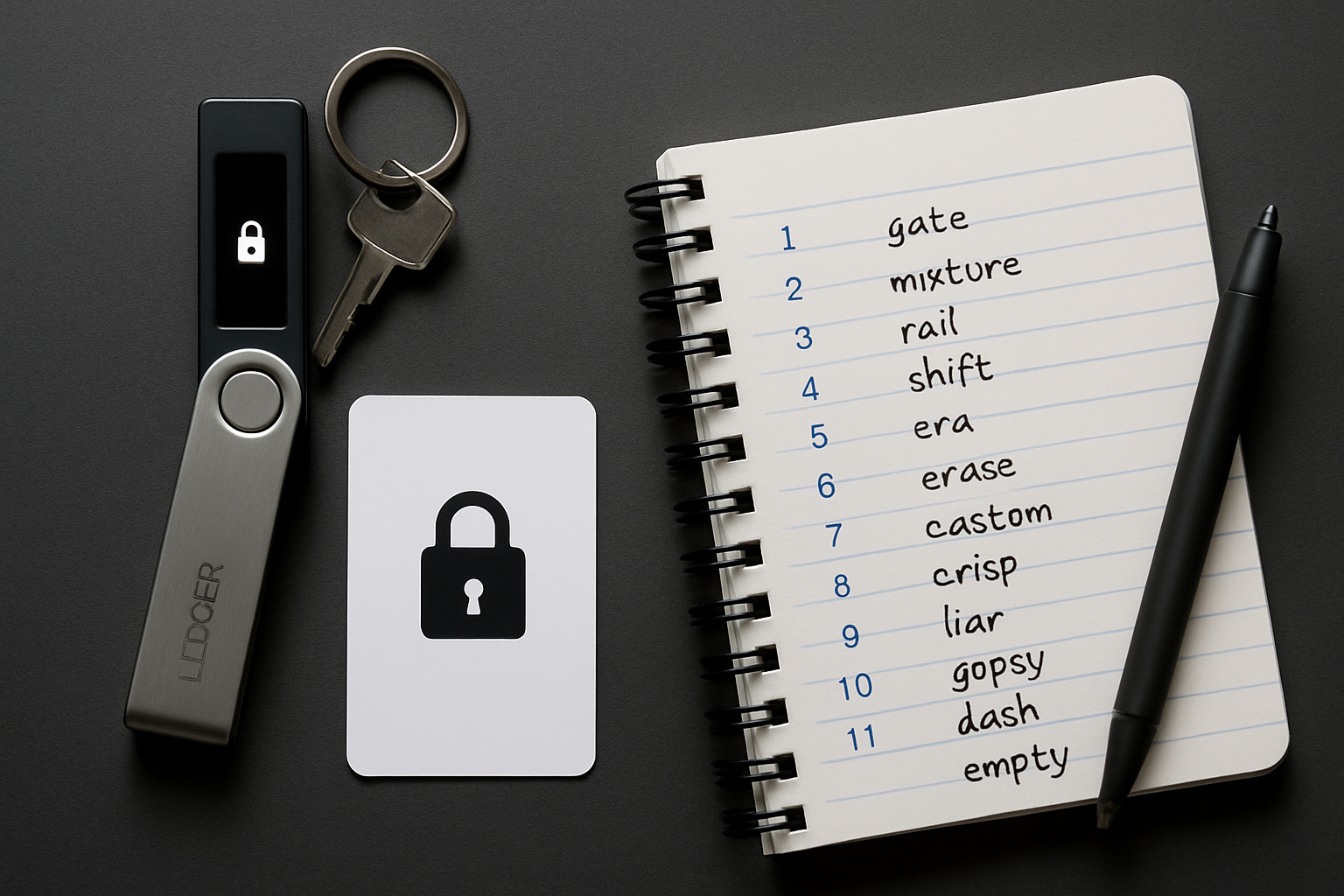Choosing the right mobile crypto wallet can make all the difference when it comes to seamless in-app trading. With so many options on the market, Trust Wallet vs Phantom has become a hot topic for anyone looking to maximize their trading experience on-the-go. Both wallets are popular, but their in-app trading features cater to different needs and preferences. Let’s break down how each wallet stacks up in 2025.

In-App Token Swaps: Speed, Fees, and Supported Networks
Phantom Wallet has built a reputation for its intuitive token swap interface. Users can swap tokens across Solana, Ethereum, and Polygon networks directly within the app. What sets Phantom apart is its liquidity aggregation – it pulls rates from multiple DEXs to ensure users get competitive prices. The flat swap fee is 0.85%, which is transparent and lower than many competitors.
Trust Wallet, meanwhile, offers a broad in-app swap feature that supports a vast selection of cryptocurrencies across numerous blockchains – including Binance Smart Chain, Ethereum, and more. While Trust Wallet also integrates with various DEXs to offer competitive rates, details about exact swap fees are less readily available than with Phantom. This can make it harder for users to estimate costs before executing a trade.
Key Differences in In-App Swaps: Phantom vs. Trust Wallet
-
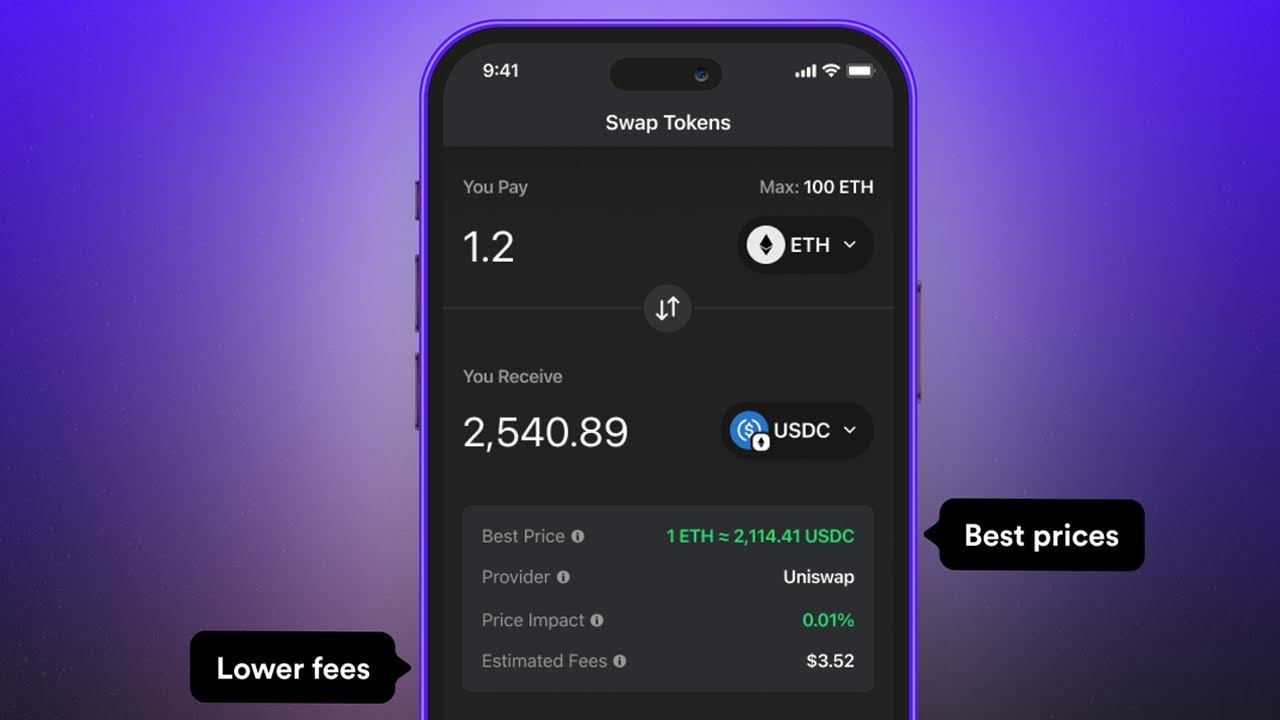
Phantom Wallet offers built-in token swaps that aggregate liquidity from multiple decentralized exchanges (DEXs) across Solana, Ethereum, and Polygon. This approach ensures users get competitive rates directly within the app.
-
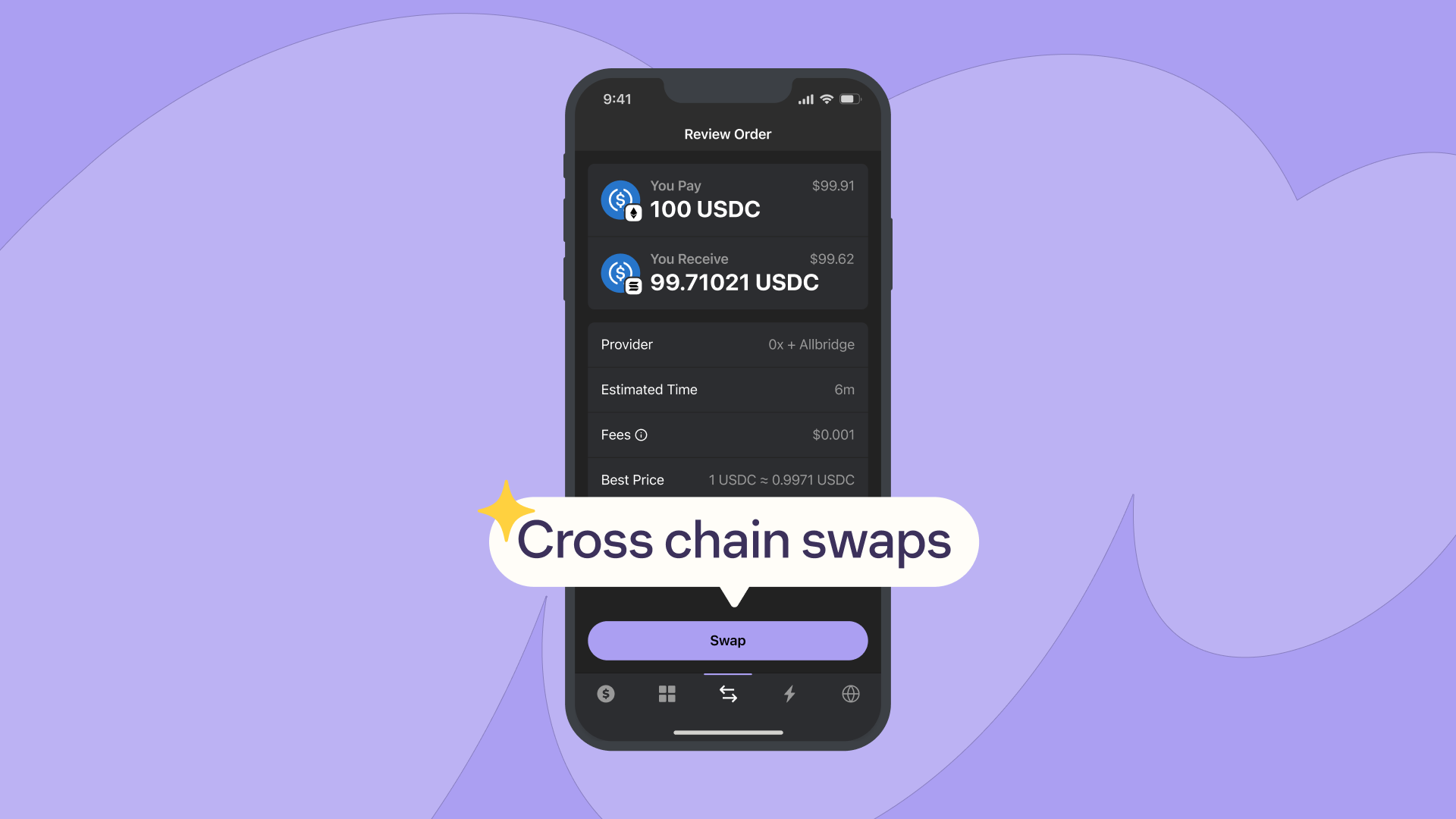
Phantom charges a flat 0.85% swap fee on all in-app token swaps, providing transparency and relatively low costs compared to many competitors.
-
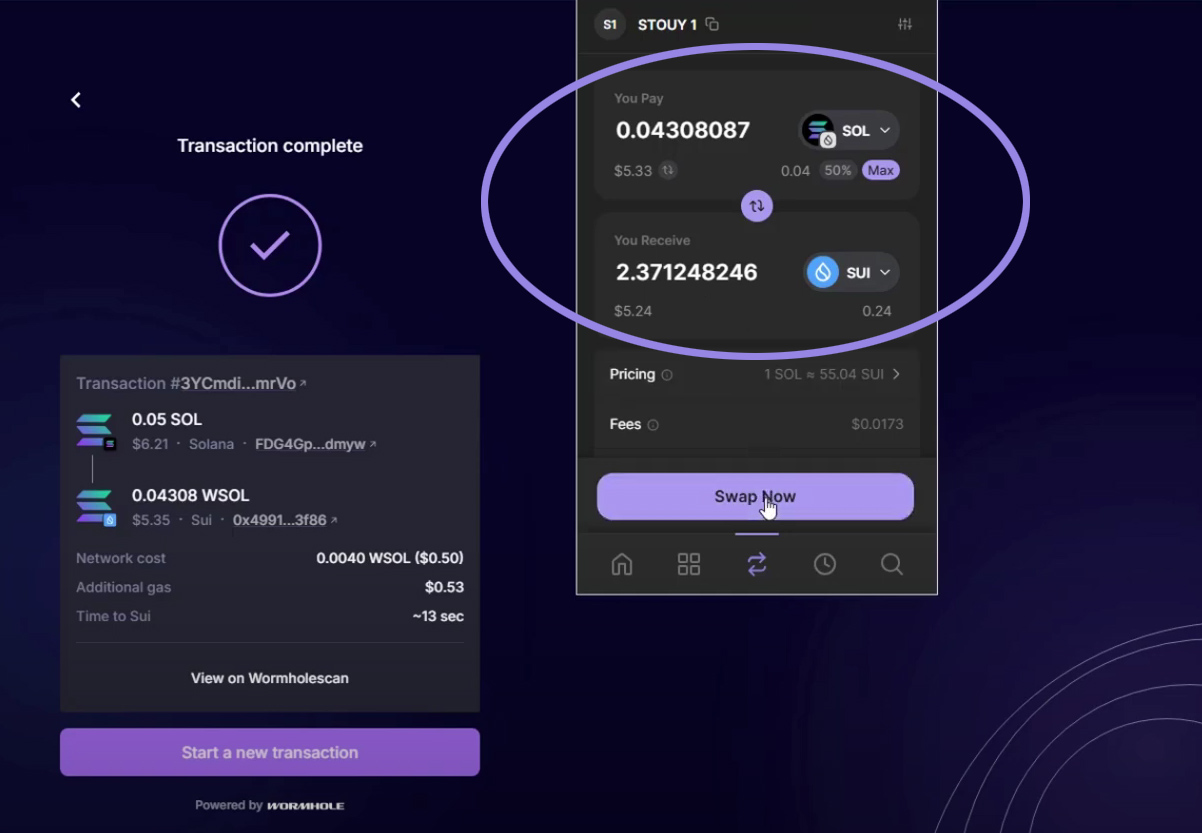
Phantom features cross-chain swapping, enabling users to convert tokens between different blockchains (e.g., Solana to Ethereum) quickly and with minimal fees, streamlining multi-chain asset management.
-
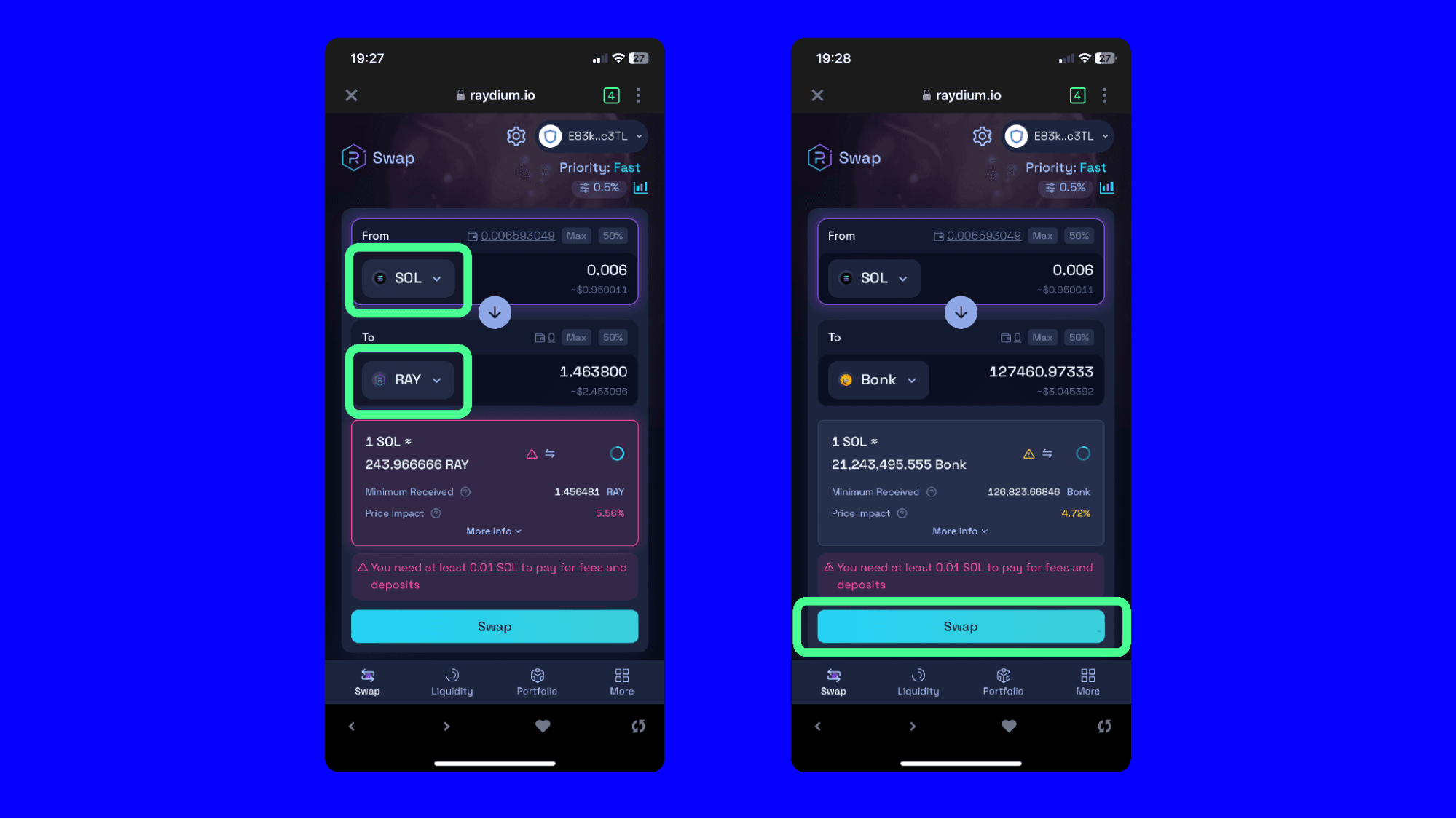
Trust Wallet supports in-app swaps for a wide range of cryptocurrencies across multiple blockchains, integrating with various DEXs to offer competitive rates. However, swap fees and supported networks are not always clearly disclosed.
-
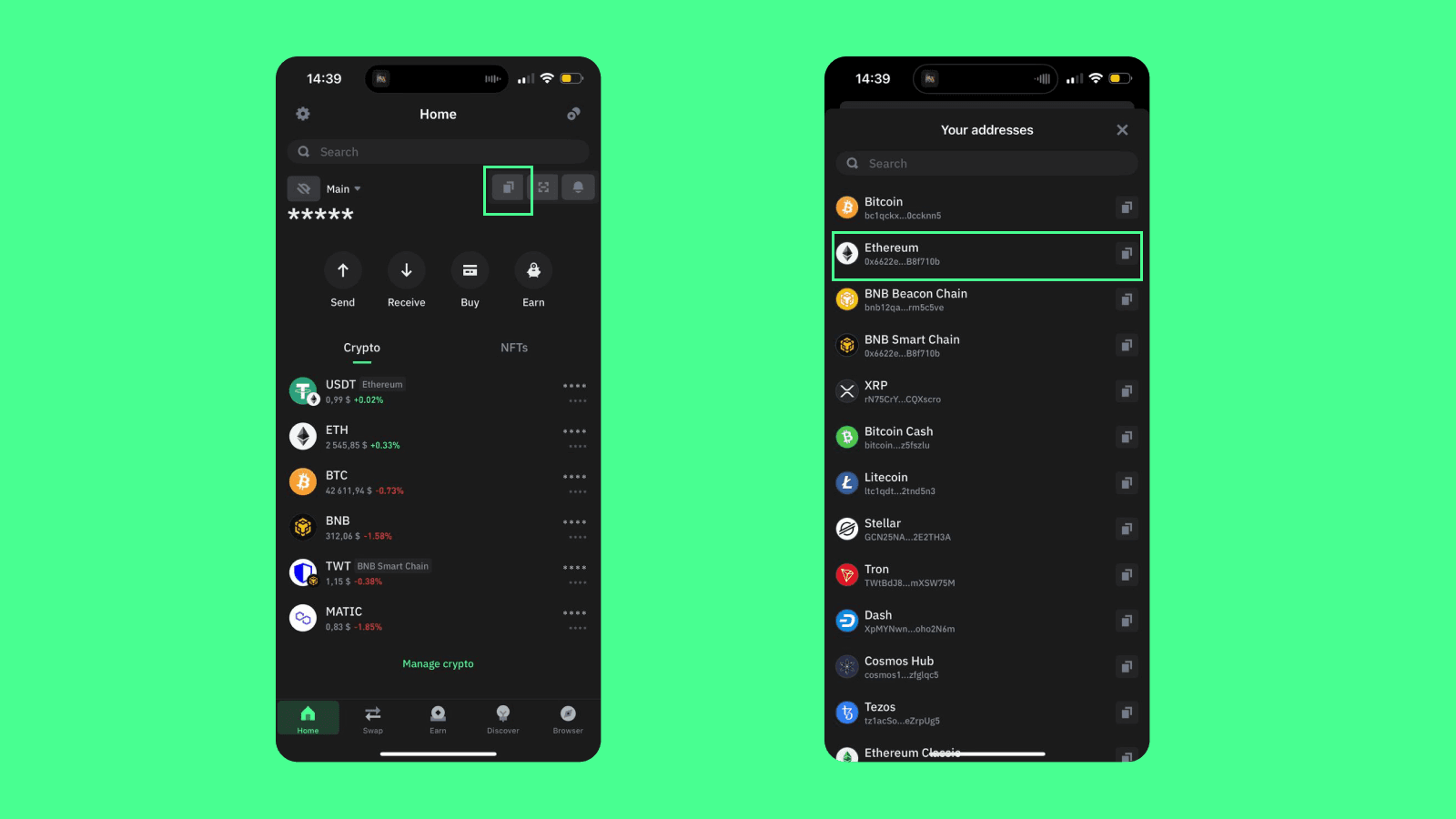
Trust Wallet provides broader staking options within the app, supporting assets like BNB, Cosmos (ATOM), and Tezos (XTZ), while Phantom focuses primarily on Solana (SOL) staking.
-
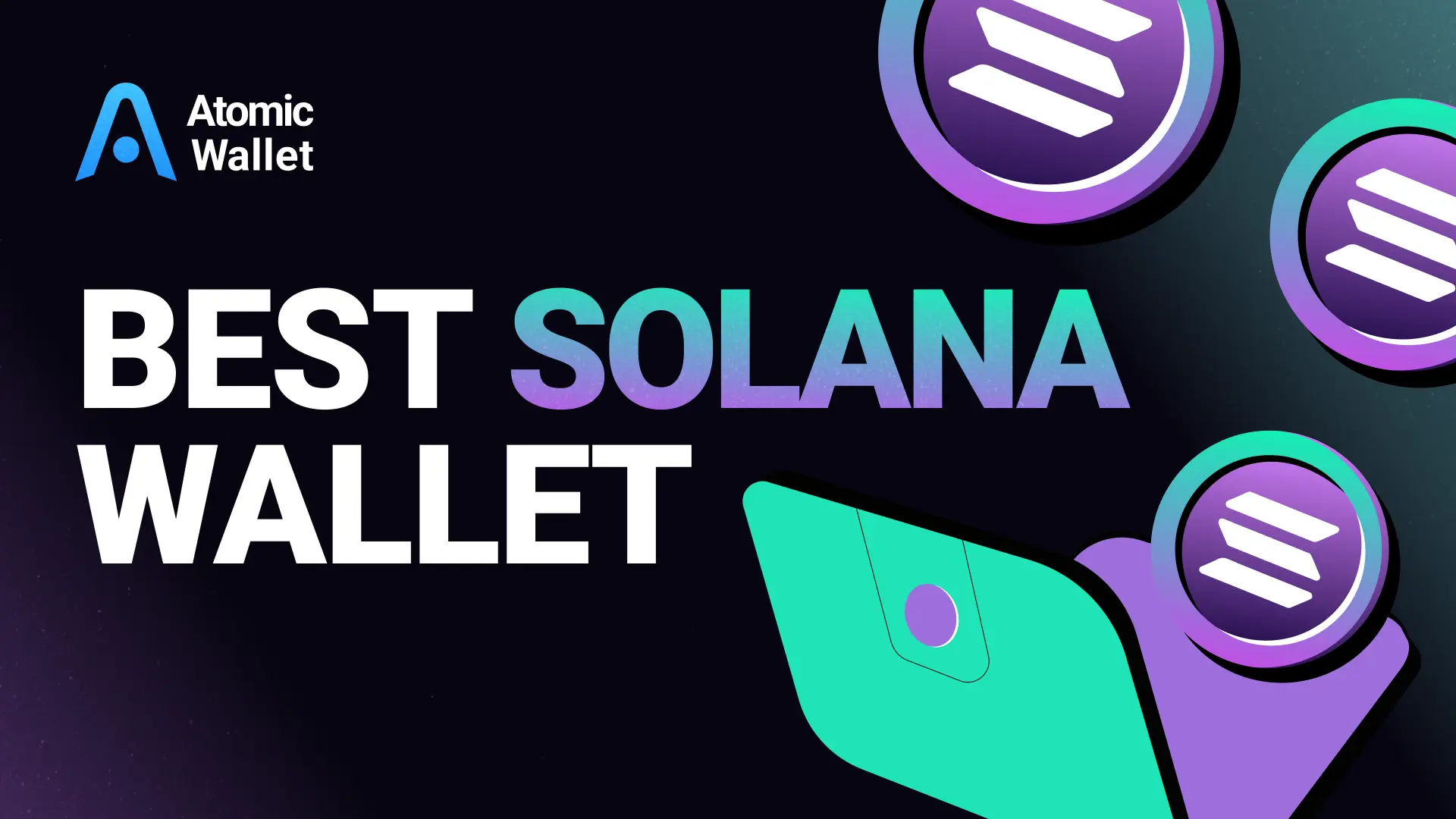
Phantom’s user interface is optimized for simplicity, making token swaps and staking especially straightforward for Solana users, while Trust Wallet emphasizes versatility and supports a wider range of assets and networks.
Cross-Chain Capabilities: Moving Assets Between Blockchains
If you regularly move assets between different blockchain ecosystems, cross-chain support is crucial. Phantom’s Cross-Chain Swapper stands out here: it lets users convert tokens across Solana, Ethereum, and Polygon quickly with minimal fees. This feature makes managing assets across chains much more accessible without leaving the app or relying on third-party bridges.
Trust Wallet does support multiple blockchains for swaps and asset management but doesn’t currently offer the same level of integrated cross-chain swapping as Phantom’s dedicated tool. Instead, users may need to interact with external protocols or bridges for some cross-chain operations.
Staking Directly Within the App
Beyond just trading, both wallets now allow users to earn passive income through staking – but each takes a slightly different approach:
- Phantom: Staking is streamlined for Solana (SOL) holders. Users can select validators within the app and start earning up to 9% APY with just a few taps.
- Trust Wallet: Offers staking for multiple coins including Binance Coin (BNB), Cosmos (ATOM), Tezos (XTZ), and others. The process varies by asset but generally follows an easy-to-navigate flow within the app.
This means that if you’re mainly focused on Solana staking or want simplicity, Phantom shines; if you want broader staking options across different chains, Trust Wallet may be your pick.
Security and usability are just as important as trading features when choosing a mobile crypto wallet. Phantom continues to impress with its clean, modern interface and robust security practices, including biometric authentication and local device encryption. Its onboarding process is beginner-friendly, making it easy for newcomers to set up a wallet and start swapping tokens or staking SOL within minutes.
Trust Wallet, on the other hand, emphasizes flexibility. The app supports an extensive list of blockchains, tokens, and dApps, appealing to users who want to experiment with different ecosystems or hold a diverse portfolio. Trust Wallet’s user experience is solid but can feel more complex due to the sheer number of supported assets and features.
User Experience: Navigating the Mobile App
Day-to-day usability matters. Phantom is built for speed and simplicity, its swap feature auto-selects the best route across DEXs, while staking SOL is just a few taps away. Notifications keep users updated on transaction statuses without overwhelming them with technical jargon.
Trust Wallet, meanwhile, offers power users more granular control. You can easily switch between networks like Ethereum, Binance Smart Chain, Polygon, and more from a single app. While this flexibility is fantastic for experienced traders or those dabbling in DeFi across multiple chains, it can be slightly intimidating for absolute beginners.
Top Reasons Users Choose Phantom for In-App Trading
-
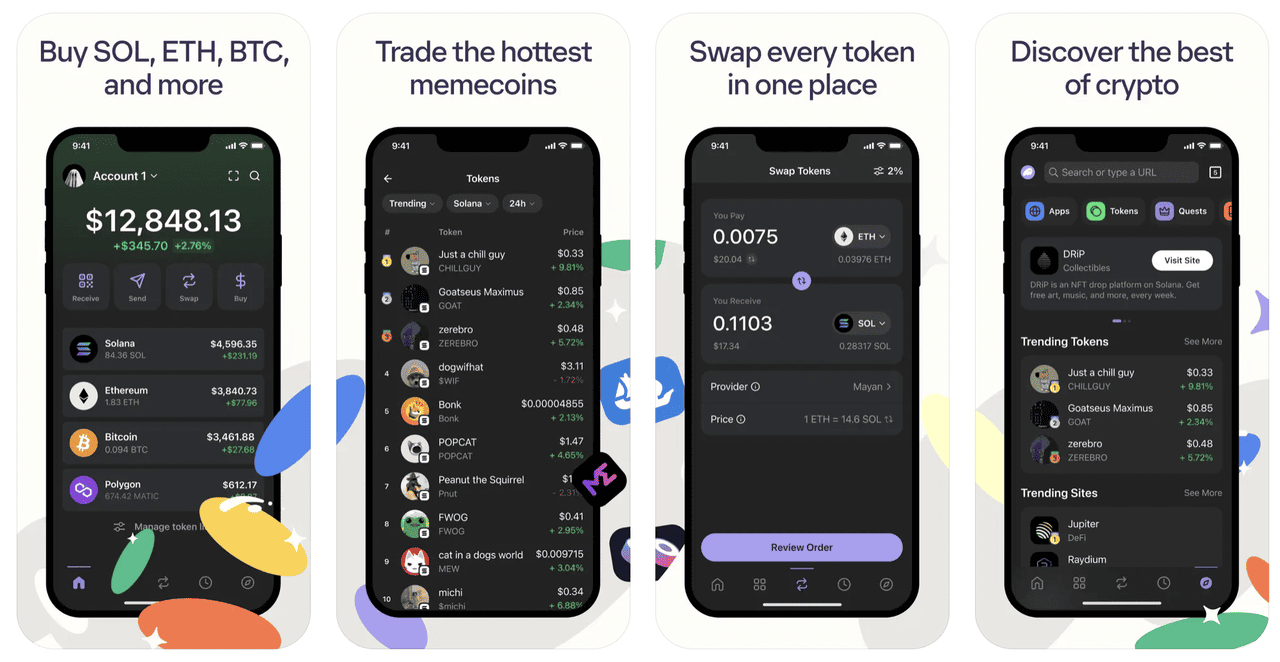
Seamless In-App Token Swaps: Phantom offers a built-in swap feature that aggregates liquidity from multiple decentralized exchanges (DEXs) across Solana, Ethereum, and Polygon. This ensures users get competitive rates and a smooth trading experience directly within the app.
-
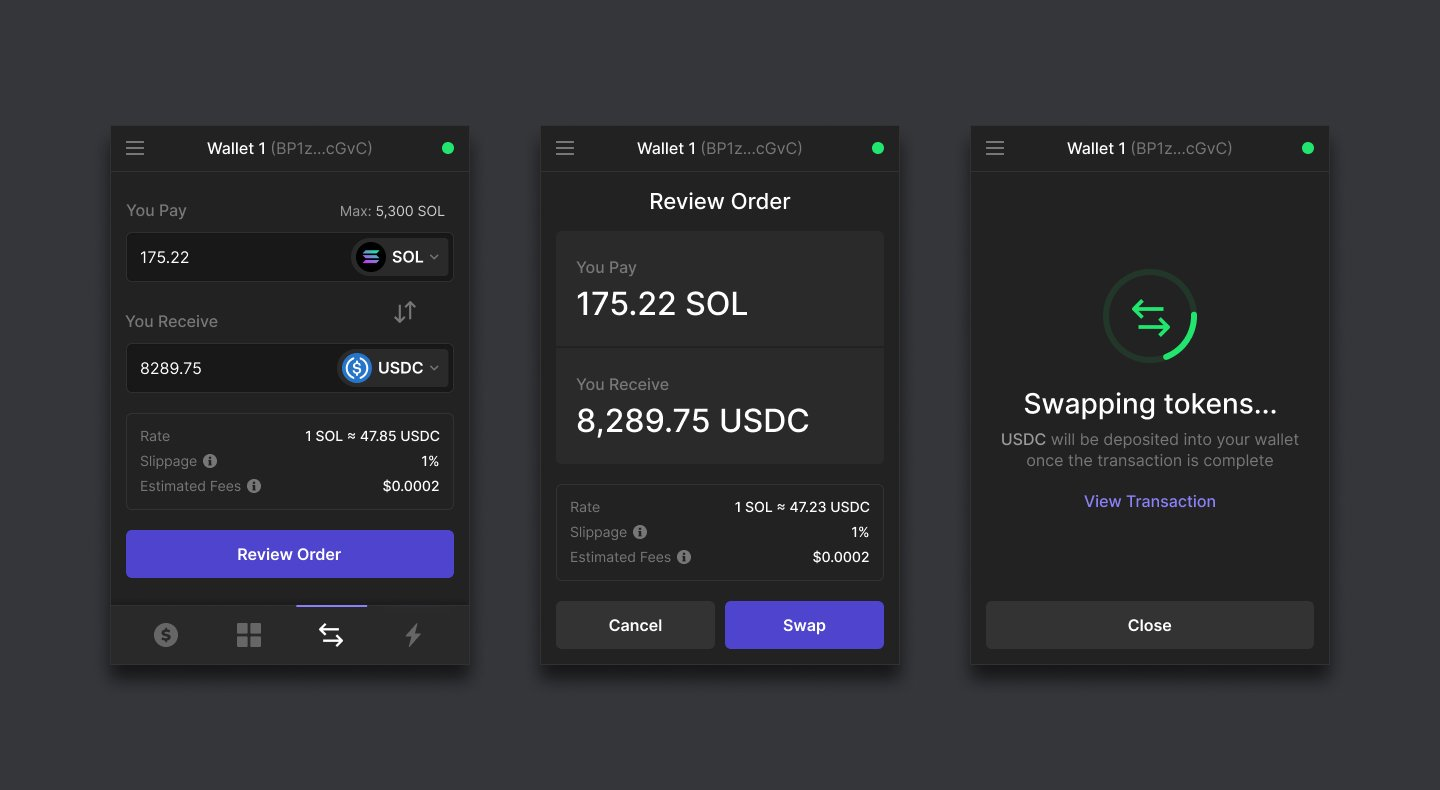
Low, Transparent Swap Fees: Phantom charges a flat 0.85% fee on in-app swaps, making costs predictable and often lower than many competitors. This transparency appeals to active traders seeking to minimize expenses.
-
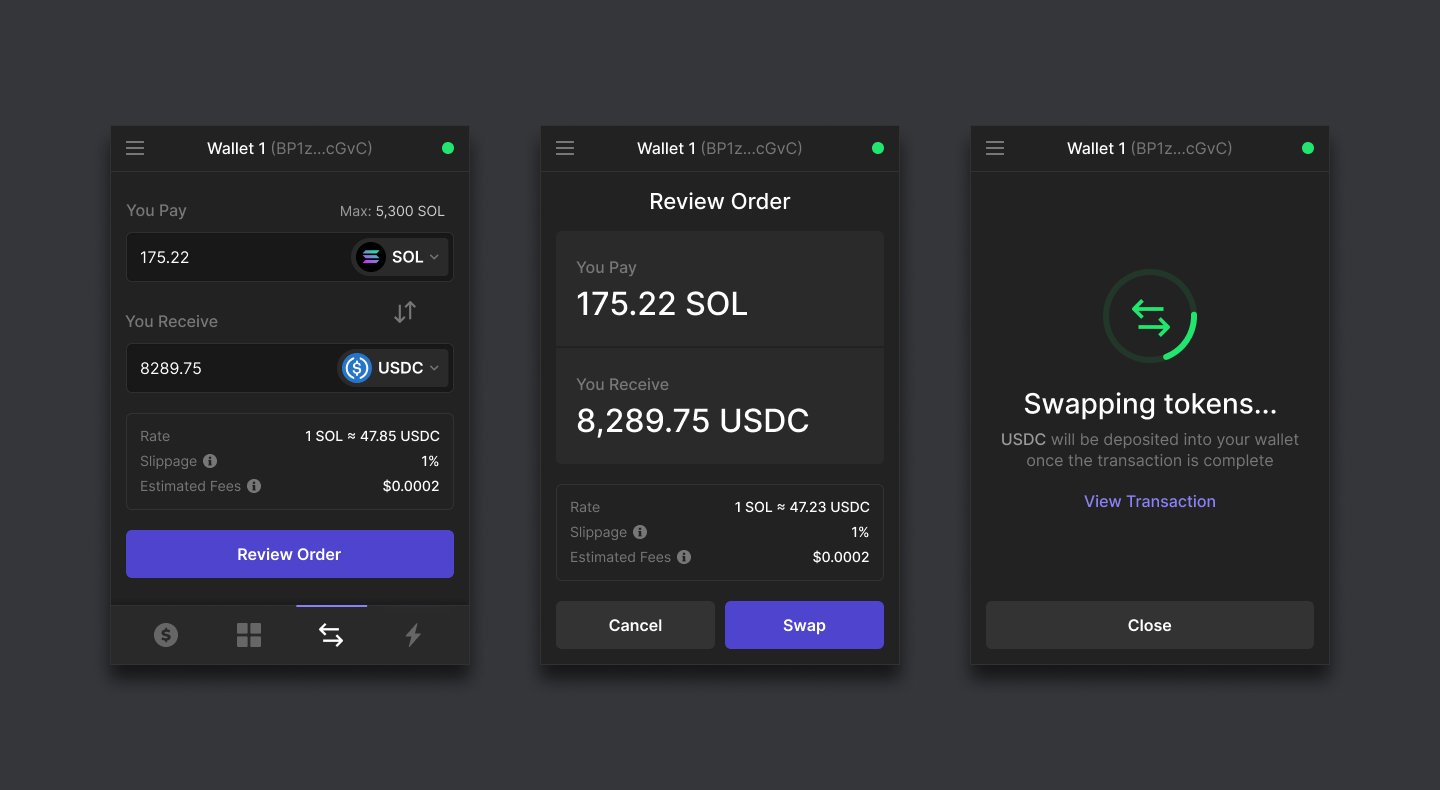
Cross-Chain Swapping: Phantom’s Cross-Chain Swapper allows users to trade tokens across different blockchains (Solana, Ethereum, Polygon) quickly and with minimal fees, simplifying asset management for multi-chain users.
-
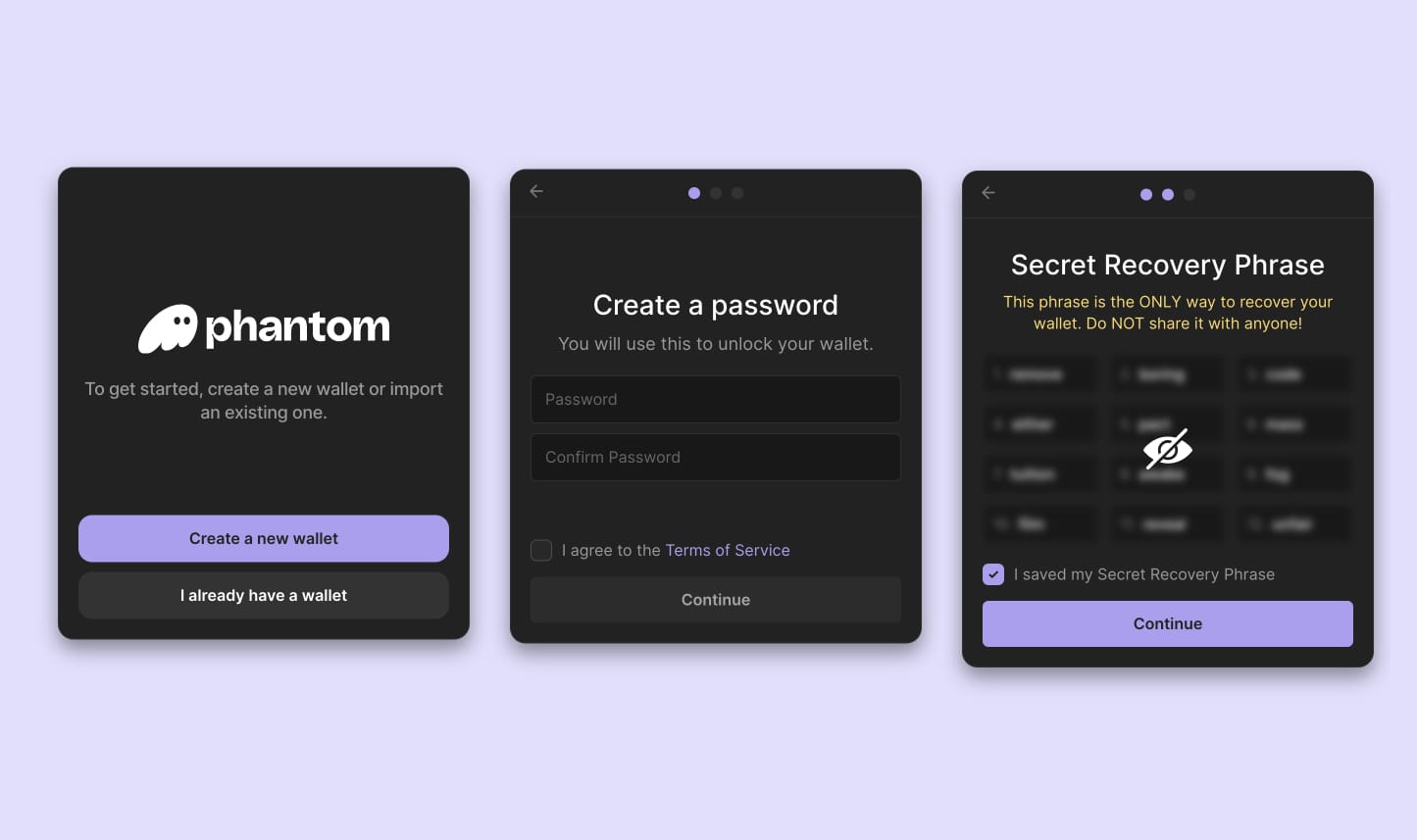
Streamlined Staking for Solana: Users can stake SOL directly in the app with a straightforward process, earning up to 9% APY. The ability to select validators and manage staked assets efficiently is a major draw for Solana enthusiasts.
-

User-Friendly Design: Phantom is known for its intuitive and sleek interface, making in-app trading and asset management accessible even for newcomers to crypto.
Which Mobile Wallet Wins for In-App Trading?
The best wallet for in-app trading comes down to your priorities:
- If you’re deep into Solana or want seamless cross-chain swaps between Solana, Ethereum, and Polygon: Phantom delivers an unbeatable user experience with low fees (0.85% per swap), fast execution, and straightforward staking.
- If you value broad multi-chain support and want access to the widest variety of coins/tokens: Trust Wallet’s integration with dozens of blockchains gives you unparalleled asset flexibility, though details on swap fees are less transparent.
The market continues to evolve quickly. Both wallets are adding features at a rapid pace as user demand grows for even smoother in-app trading experiences on mobile devices.
Final Thoughts: Phantom or Trust Wallet?
If your main goal is hassle-free trading within the Solana ecosystem, or you need cross-chain swaps that “just work”: Phantom should be at the top of your list. But if you’re looking for an all-in-one solution that supports virtually every major blockchain and token (and don’t mind digging into settings), Trust Wallet remains a top contender among mobile crypto wallets.
No matter which you choose in the Phantom vs Trust Wallet comparison, both offer strong security foundations and are trusted by millions worldwide. Your choice will ultimately depend on which features matter most for your unique crypto journey.


